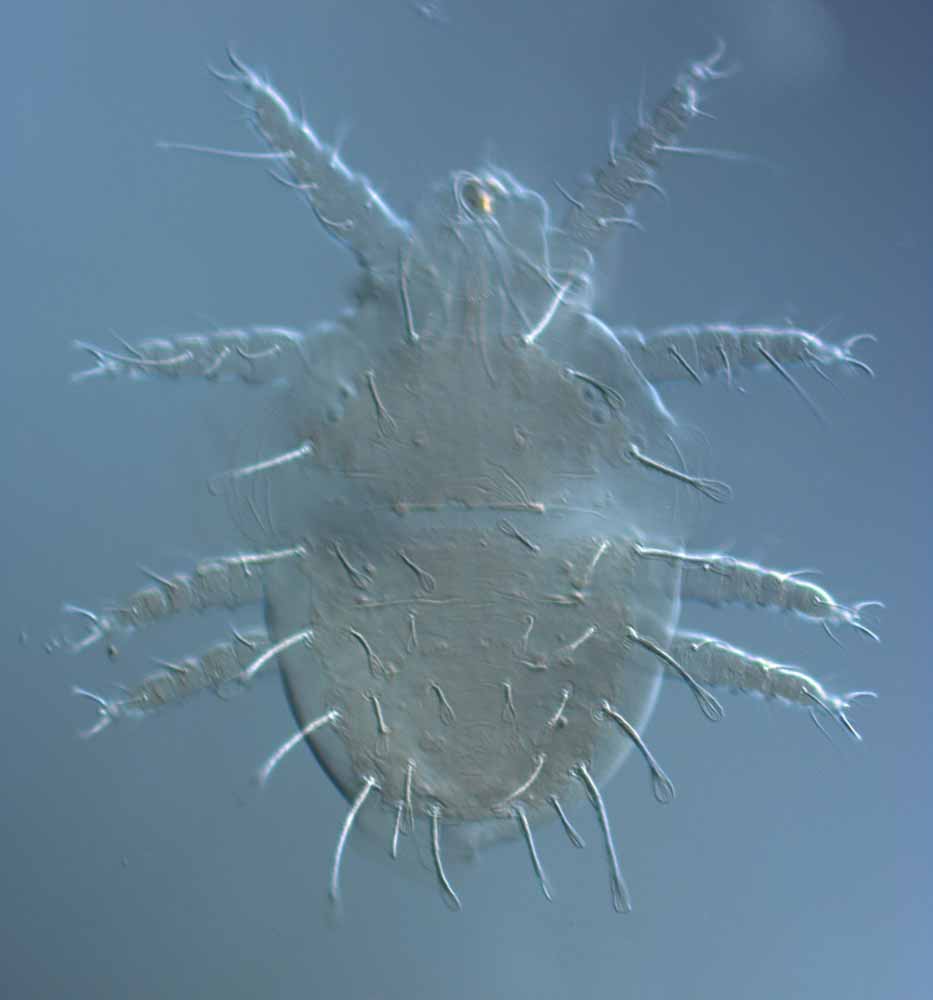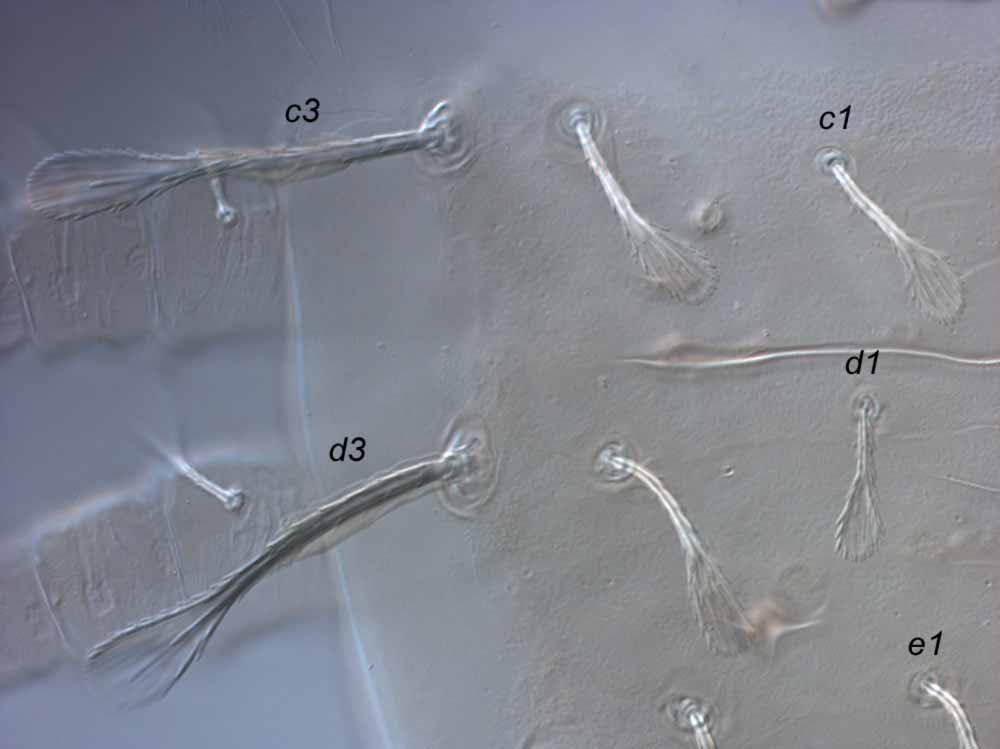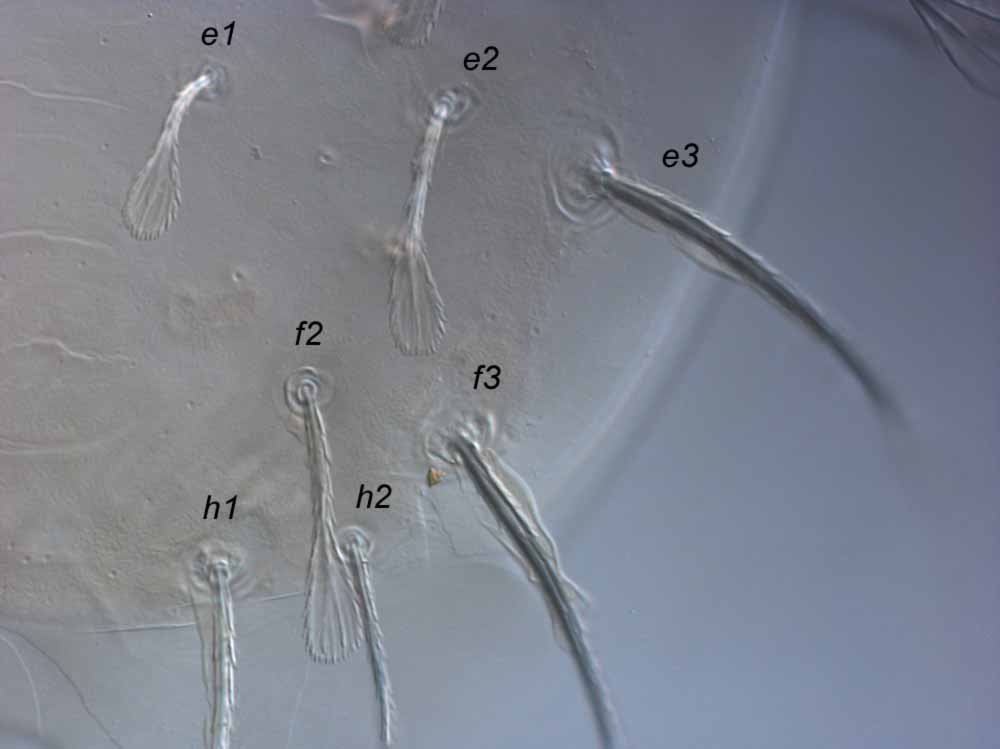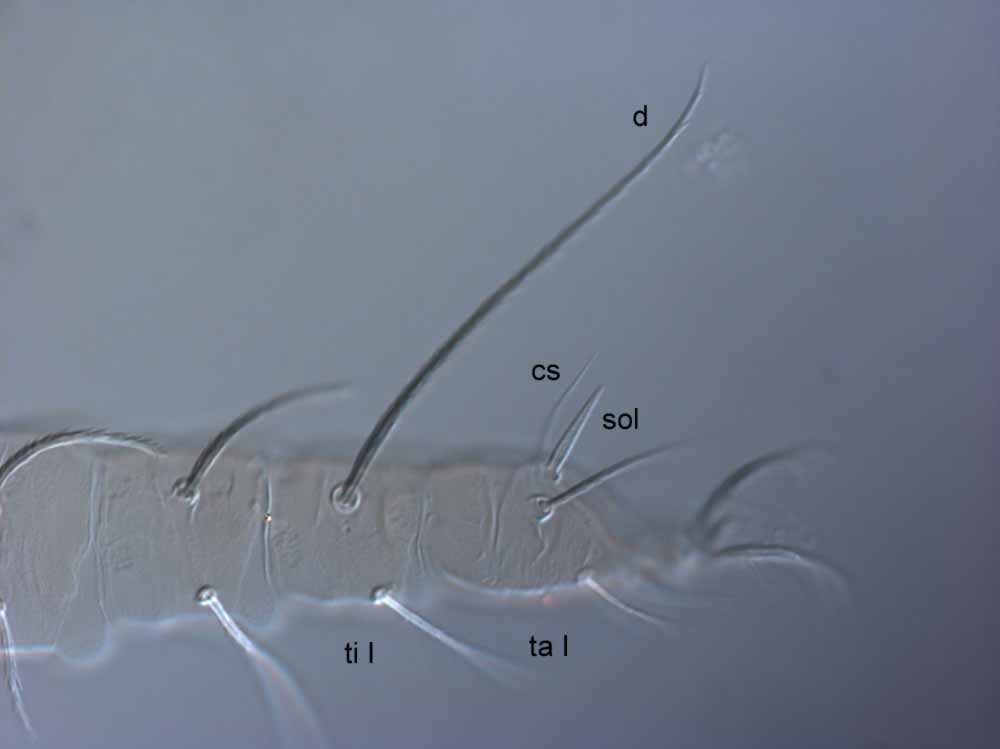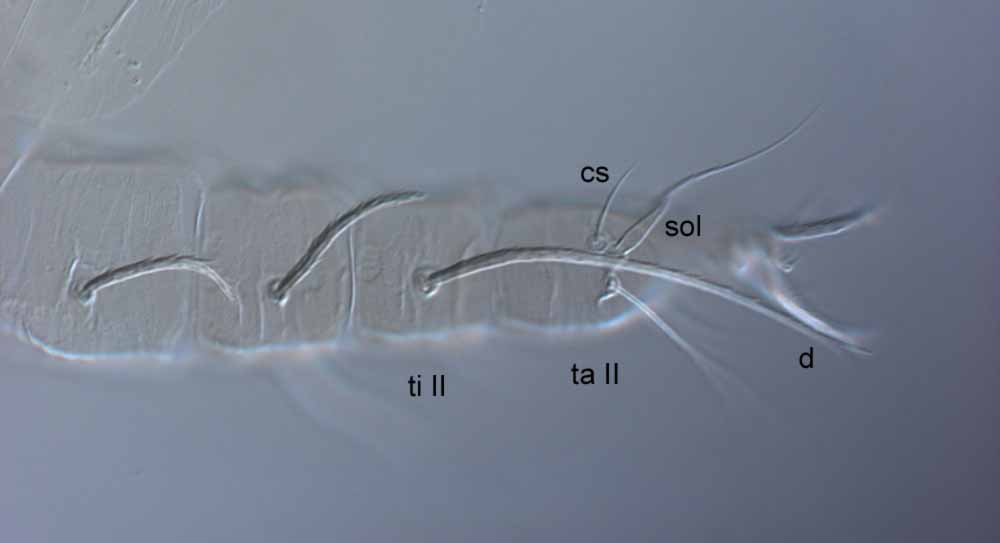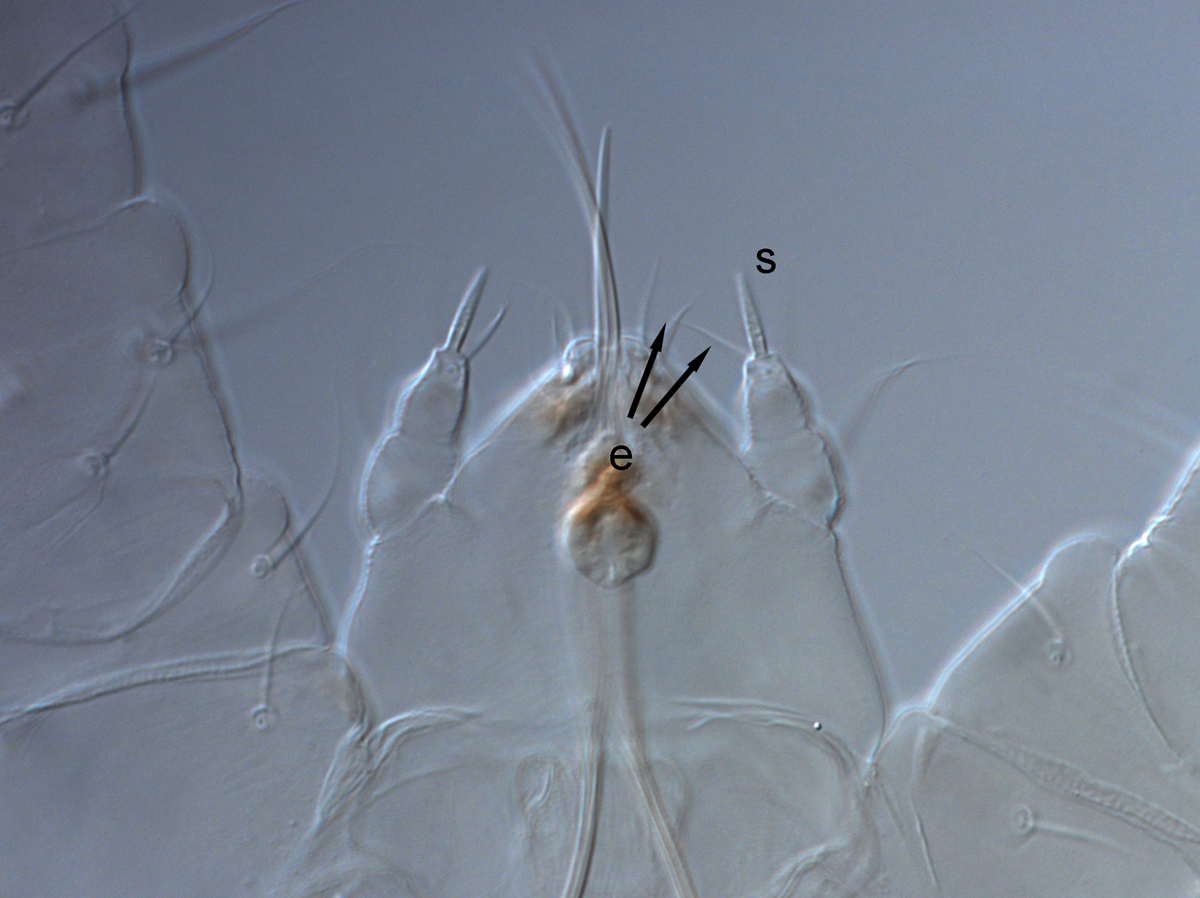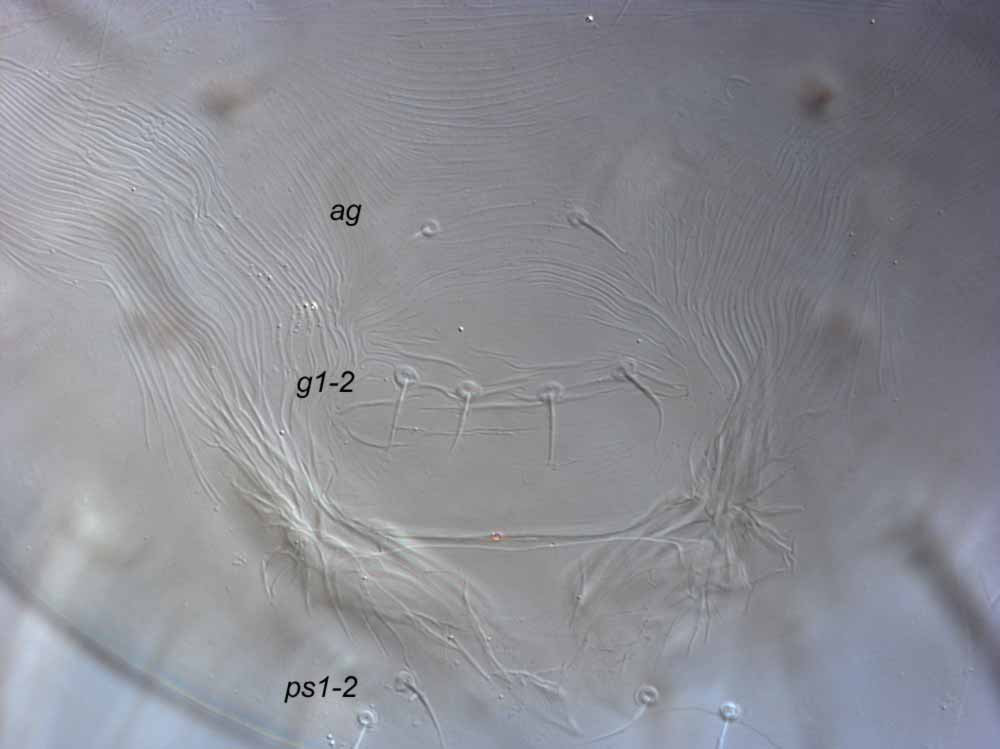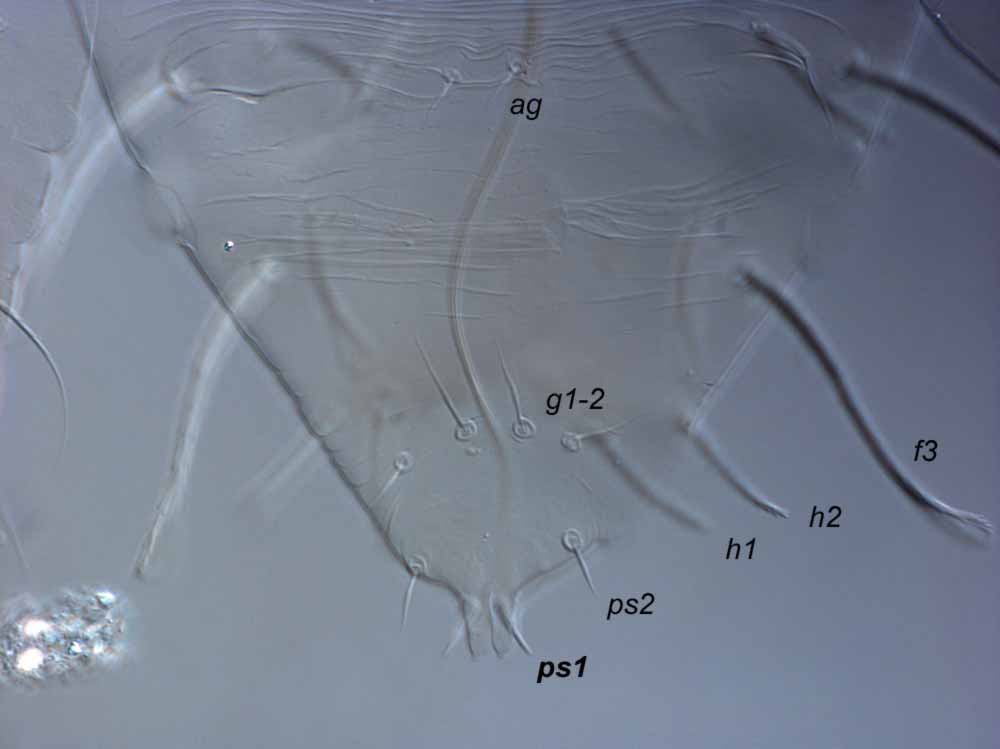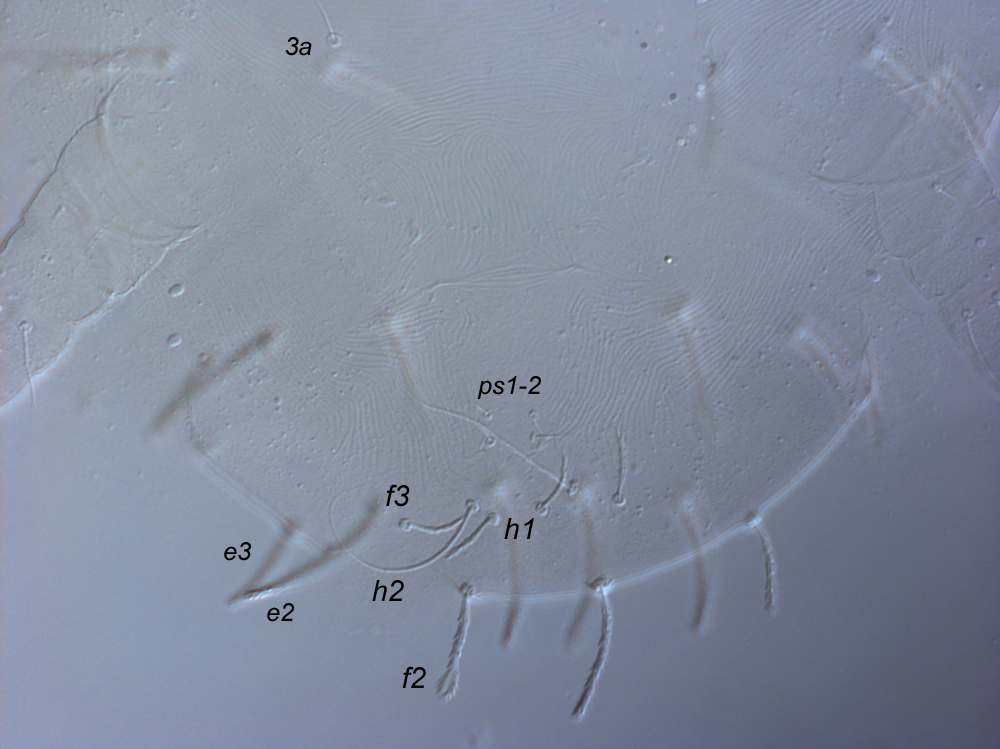Raoiella tallerack
|
Fig. 1. Raoiella tallerack female dorsum. |
|
Fig. 2. Raoiella tallerack female anterior dorsal opisthosoma. |
|
Fig. 3. Raoiella tallerack female posterior lateral dorsum. |
|
Fig. 4. Raoiella tallerack female leg I (sol = solenidion; cs = companion seta; d = dorsal seta on tibia; ti = tibia; ta = tarsus). |
|
Fig. 5. Raoiella tallerack female leg II (sol = solenidion; cs = companion seta; d = dorsal seta on tibia; ti = tibia; ta = tarsus). |
|
Fig. 6. Raoiella tallerack male palp (s = solenidion; e = eupathidium). |
|
Fig. 7. Raoiella tallerack female posterior venter indicating setae ps1-2. |
|
Fig. 8. Raoiella tallerack male posterior venter indicating ps1 setae. |
|
Fig. 9. Raoiella tallerack larva, posterior venter, indicating elongate filiform setae h2. |
Authority
Beard and Ochoa
Key characters
- setae c1, d1, e1 obviously spatulate (Figs. 1, 2, 3)
- seta h1 longer than h2 (Figs. 1, 3)
- seta h2 spatulate
- seta f2 shorter than f3 (Figs. 1, 3)
- coxae III-IV nude
- femur II with 3 setae (d, bv", v' present; l' absent)
- genua I-II with 3 setae (d, l', l")
- tarsi I with companion seta obviously longer than solenidion (make sure tip of companion seta is visible) (Fig. 4)
- tarsus II with companion seta subequal to slightly longer than solenidion (Fig. 5)
- dorsal setae on tibiae I-II setiform, with tapered tip (but not finely tapered) (Figs. 4, 5)
- palp tibiotarsus with one solenidion and one tapered, setiform eupathidium distally (Fig. 6), and one seta dorsally
- setae ps1 and ps2 inserted adjacent to each other (Fig. 7)
- male with short ps1 setae, 8-10 microns (Fig. 8)
- male femur II and genua I-II same as female
- larva with elongate, filiform setae h2
Similar species
Raoiella tallerack is morphologically similar to Raoiella wandoo.
Raoiella tallerack: opisthosomal setae c1 25-29, c2 32-36, f2 35-43, h2 30-38; male prodorsal setae v2 spatulate; deutonymph setae d on tibiae I-II with broad blunt tips; stipe on egg is 5X length of egg.
Raoiella wandoo: opisthosomal setae c1 19-23, c2 25-31, f2 31-36, h2 22-34; male prodorsal setae v2 tapered; deutonymph setae d on tibiae I-II with tapered; stipe on egg is 1-2X length of egg.
Distribution
Australia (WA)
Hosts
Tallerack, Eucalyptus pleurocarpa (Myrtaceae)
Remarks
This species is placed in the wandoo species group by Beard et al. (2018).
Collected from coastal habitat in the south west corner of Western Australia.
Raoiella tallerack grouped with R. wandoo as species 3 in Dowling et al. (2012).
Raoiella tallerack was listed as Raoiella nr sp. 3 in Beard et al. (2012).
References
Beard et al. (2018); Dowling et al. (2012)

